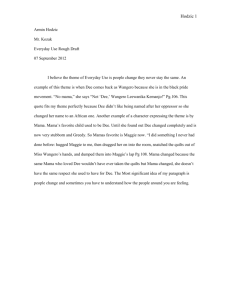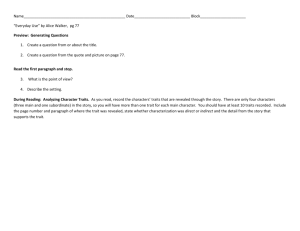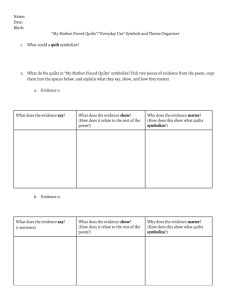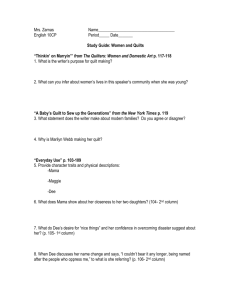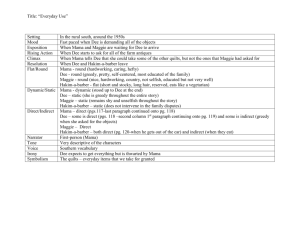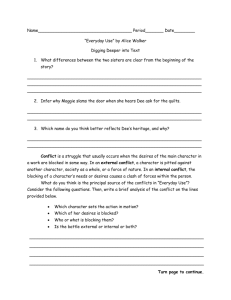Everyday Use Notes
advertisement
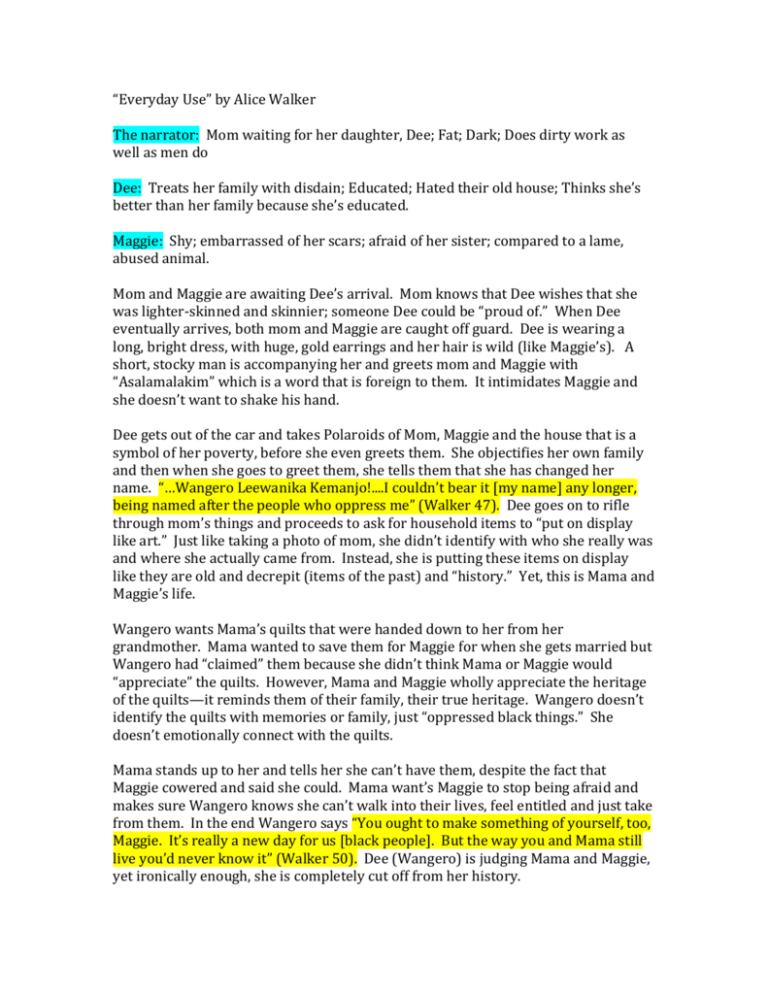
“Everyday Use” by Alice Walker The narrator: Mom waiting for her daughter, Dee; Fat; Dark; Does dirty work as well as men do Dee: Treats her family with disdain; Educated; Hated their old house; Thinks she’s better than her family because she’s educated. Maggie: Shy; embarrassed of her scars; afraid of her sister; compared to a lame, abused animal. Mom and Maggie are awaiting Dee’s arrival. Mom knows that Dee wishes that she was lighter-skinned and skinnier; someone Dee could be “proud of.” When Dee eventually arrives, both mom and Maggie are caught off guard. Dee is wearing a long, bright dress, with huge, gold earrings and her hair is wild (like Maggie’s). A short, stocky man is accompanying her and greets mom and Maggie with “Asalamalakim” which is a word that is foreign to them. It intimidates Maggie and she doesn’t want to shake his hand. Dee gets out of the car and takes Polaroids of Mom, Maggie and the house that is a symbol of her poverty, before she even greets them. She objectifies her own family and then when she goes to greet them, she tells them that she has changed her name. “…Wangero Leewanika Kemanjo!....I couldn’t bear it [my name] any longer, being named after the people who oppress me” (Walker 47). Dee goes on to rifle through mom’s things and proceeds to ask for household items to “put on display like art.” Just like taking a photo of mom, she didn’t identify with who she really was and where she actually came from. Instead, she is putting these items on display like they are old and decrepit (items of the past) and “history.” Yet, this is Mama and Maggie’s life. Wangero wants Mama’s quilts that were handed down to her from her grandmother. Mama wanted to save them for Maggie for when she gets married but Wangero had “claimed” them because she didn’t think Mama or Maggie would “appreciate” the quilts. However, Mama and Maggie wholly appreciate the heritage of the quilts—it reminds them of their family, their true heritage. Wangero doesn’t identify the quilts with memories or family, just “oppressed black things.” She doesn’t emotionally connect with the quilts. Mama stands up to her and tells her she can’t have them, despite the fact that Maggie cowered and said she could. Mama want’s Maggie to stop being afraid and makes sure Wangero knows she can’t walk into their lives, feel entitled and just take from them. In the end Wangero says “You ought to make something of yourself, too, Maggie. It’s really a new day for us [black people]. But the way you and Mama still live you’d never know it” (Walker 50). Dee (Wangero) is judging Mama and Maggie, yet ironically enough, she is completely cut off from her history.
